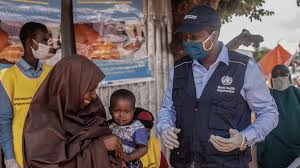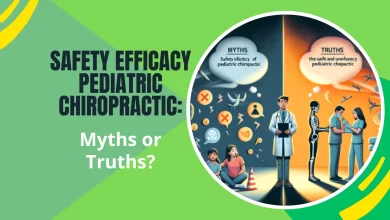The Role of Maternal Health Task Forces in Improving Global Health

Maternal health remains a critical issue worldwide, with millions of women facing challenges that put their lives and the lives of their unborn children at risk. To address these challenges, Maternal Health Task Forces (MHTFs) have been established globally, working tirelessly to improve the health outcomes of mothers and infants. These task forces are essential in ensuring that maternal health is prioritized in both policy and practice. If you’re interested in learning more about the vital work of these organizations, you can visit Maternal Health Task Force for further information.
Understanding the Importance of Maternal Health
Maternal health refers to the health of women during pregnancy, childbirth, and the postpartum period. It is a crucial aspect of global health, as the well-being of mothers directly influences the health of the next generation. Unfortunately, maternal health is often compromised by factors such as inadequate healthcare access, poor nutrition, lack of education, and socio-economic disparities.
The World Health Organization (WHO) estimates that approximately 295,000 women died from complications related to pregnancy or childbirth in 2017. Most of these deaths were preventable, highlighting the urgent need for improved maternal healthcare services worldwide. Maternal Health Task Forces play a crucial role in addressing these gaps by focusing on prevention, education, and access to care.
The Role of Maternal Health Task Forces
Maternal Health Task Forces are collaborative efforts that bring together healthcare providers, policymakers, researchers, and community organizations to address the various challenges related to maternal health. These task forces work on multiple levels to improve maternal health outcomes, including:
- Policy Advocacy: MHTFs advocate for policies that prioritize maternal health. This includes lobbying for increased funding for maternal health programs, improving healthcare infrastructure, and ensuring that maternal health is included in national and international health agendas. By influencing policy, MHTFs help create a supportive environment for maternal health initiatives to thrive.
- Education and Training: A key focus of MHTFs is educating healthcare providers and communities about the importance of maternal health. This includes training midwives, nurses, and doctors on best practices for maternal care, as well as educating women and families about the importance of prenatal care, nutrition, and safe childbirth practices. Education is vital in empowering women to make informed decisions about their health.
- Research and Data Collection: MHTFs conduct research to identify the most pressing maternal health issues and to evaluate the effectiveness of interventions. By collecting and analyzing data, these task forces can identify trends, target areas of need, and develop evidence-based strategies to improve maternal health outcomes. This research also helps to raise awareness about the challenges faced by mothers worldwide.
- Community Engagement: MHTFs work closely with communities to address the cultural and social factors that impact maternal health. This includes involving community leaders in maternal health initiatives, promoting gender equality, and addressing issues such as early marriage and gender-based violence. By engaging communities, MHTFs ensure that maternal health initiatives are culturally sensitive and effective.
- Partnerships and Collaboration: MHTFs often collaborate with international organizations, governments, and NGOs to leverage resources and expertise. These partnerships are crucial in scaling up successful interventions and ensuring that maternal health initiatives have a broader impact. Collaboration also helps to avoid duplication of efforts and promotes the sharing of best practices.
Success Stories: How MHTFs Are Making a Difference
The work of Maternal Health Task Forces has led to significant improvements in maternal health outcomes in various regions. For example, in sub-Saharan Africa, MHTFs have been instrumental in reducing maternal mortality rates by implementing community-based interventions, improving access to skilled birth attendants, and increasing the availability of emergency obstetric care.
In South Asia, MHTFs have focused on educating women about the importance of prenatal care and nutrition, leading to better health outcomes for both mothers and infants. These efforts have also helped to reduce the incidence of anemia and other pregnancy-related complications.
One notable success story is the reduction of maternal mortality in Rwanda. Through the efforts of an MHTF, the country implemented a comprehensive maternal health program that included training healthcare providers, improving healthcare infrastructure, and increasing community awareness about maternal health. As a result, Rwanda saw a significant decrease in maternal mortality rates, showcasing the power of coordinated efforts to improve maternal health.
The Future of Maternal Health Task Forces
While significant progress has been made, there is still much work to be done to ensure that all women have access to quality maternal healthcare. Maternal Health Task Forces will continue to play a crucial role in advocating for maternal health, conducting research, and implementing effective interventions.
The future of maternal health depends on sustained efforts to address the root causes of maternal mortality and morbidity. This includes continued investment in healthcare infrastructure, education, and community engagement. Additionally, as the world faces new challenges such as the COVID-19 pandemic, MHTFs must adapt and innovate to ensure that maternal health remains a priority.
Conclusion
Maternal Health Task Forces are essential in the global effort to improve maternal health outcomes. By focusing on policy advocacy, education, research, and community engagement, these task forces are making a significant impact on the lives of mothers and infants worldwide. To learn more about the vital work being done and how you can support these efforts, be sure to visit Maternal Health Task Force.




